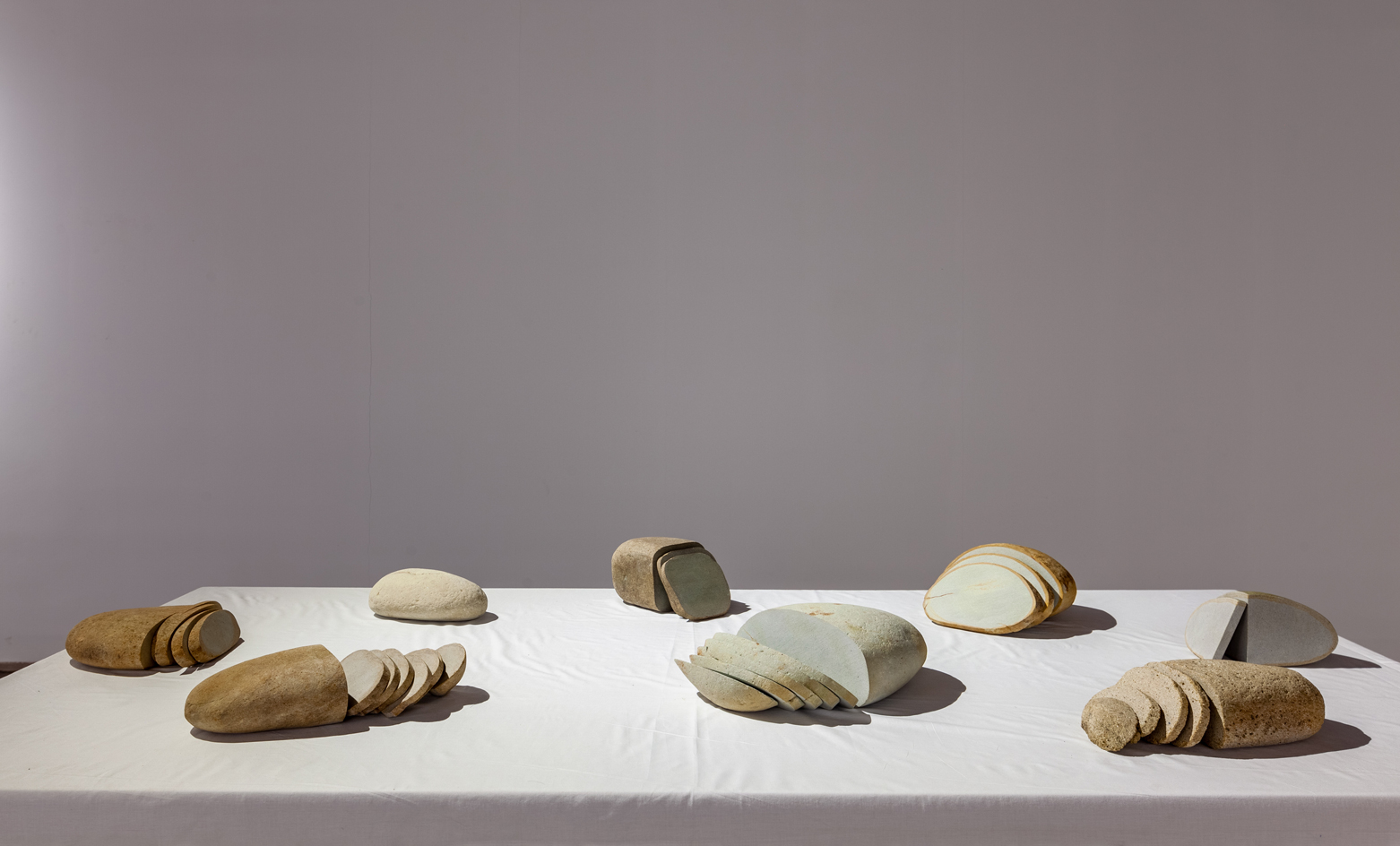
Receive our daily digest of inspiration, escapism and design stories from around the world direct to your inbox.
You are now subscribed
Your newsletter sign-up was successful
Want to add more newsletters?

Daily (Mon-Sun)
Daily Digest
Sign up for global news and reviews, a Wallpaper* take on architecture, design, art & culture, fashion & beauty, travel, tech, watches & jewellery and more.

Monthly, coming soon
The Rundown
A design-minded take on the world of style from Wallpaper* fashion features editor Jack Moss, from global runway shows to insider news and emerging trends.

Monthly, coming soon
The Design File
A closer look at the people and places shaping design, from inspiring interiors to exceptional products, in an expert edit by Wallpaper* global design director Hugo Macdonald.
On the southwestern coast of India is the state of Kerala. It is known for its beaches, backwaters, mountains, coffee and tea plantations, leftist politics, high literacy rate, communal harmony, equal sex ratio, pluralism, (much to the dismay of what is currently a highly polarised democracy) and efficient healthcare during the Covid-19 pandemic.
On the backwaters of Kerala, an event surfaces every spring during the harvest festival of Onam. The Vallam Kali Boat Race is a major sports attraction, where long ‘snake canoes’ compete to finish a stretch of 40 km. Rowing in perfect synchrony, to metrical singing, the sight of hundreds of arms and oars in perfect cadence, surging toward a common finish line, is symbolic of the state’s collective spirit. It hosts the Kochi-Muziris Biennale with the same spirit.
The fifth edition of the Kochi-Muziris Biennale, in the charming city of Kochi (formerly Cochin), was planned for 2020 but postponed due to the pandemic. Its main events, after much turbulence, opened in December 2022 and will be on view until April 2023. The theme of this edition is ‘In Our Veins Flow Ink and Fire’, curated by artist-writer Shubigi Rao. Rao wrote her curatorial intent in 2019 and commented on how the vision evolved during the years of postponement. ‘I felt the urge to revisit and rewrite it, to reflect what was happening across the world. As it turned out, I didn’t have to and the reason was obvious – the issues that I had grappled with in the note remained as valid, now laid bare,’ she says. ‘The widening of the chasms of inequality, heightened redistribution of wealth from the majority world to the one per cent, the continuing and devastating effects of human action on the environment, the spread of misinformation, populism and demagoguery – all these struggles remain. The strategies to survive through social isolation and fragmentation of community, especially through storytelling and the arts, became vital supports for large swathes of the world’s population.’
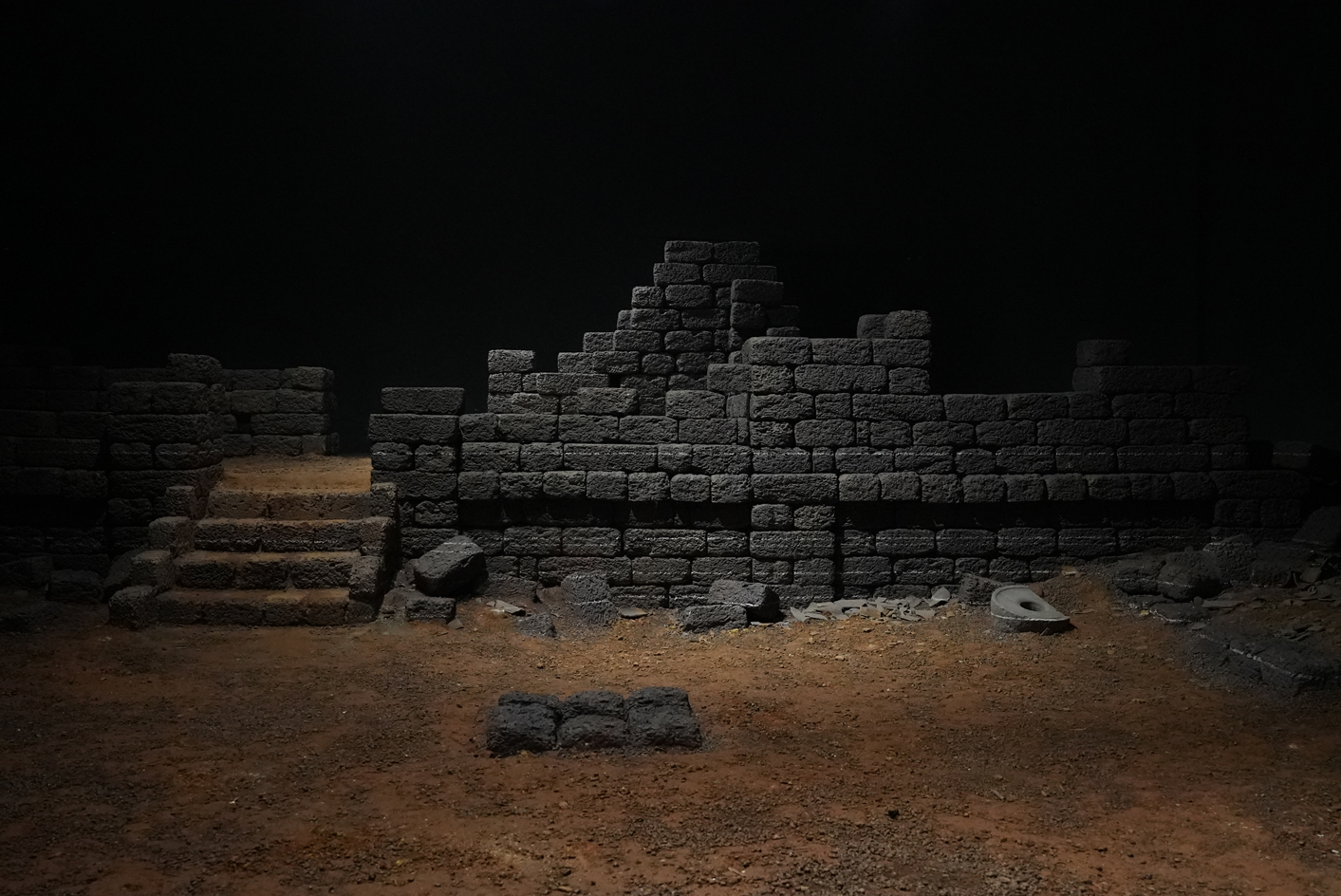
Sahil Naik at the Kochi-Muziris Biennale
Over 200 projects are spread across heritage properties, cafés, warehouses, galleries and public spaces. Featuring over 90 artists and collectives, over 40 new commissions, and a mix of international and local, emerging and established, surpassing lines and boundaries, the historic venues – Aspinwall House, Pepper House, and Anand Warehouse in the neighbourhood of Fort Kochi – pulsate with fervent anticipation.
The neighbourhood of Jew Town is dotted with cafés, shops and boutiques selling local handicrafts and Jewish embroidery, and is marked by an endearing synagogue. A few venues like the TKM Warehouse have seven shows on display; multidisciplinary and of artists across borders. They include ‘Tangled Hierarchy 2’, presented by KNMA and curated by Jitish Kallat; South African artist, William Kentridge’s video projection titled Oh To Believe in Another World invoking the imagination of an alternate reality. Elsewhere, the Chennai Photo Biennale asks searing questions about belonging, community, and identity. These questions are expounded upon by Bhumi – presented by the Gidree Bawlee Foundation of Arts and Durjoy Bangladesh Foundation (DBF) – where in the midst of the pandemic, rural artisans using traditional craftsmanship, channelled their community ethos for the ‘developed’ world to fathom and reflect upon.
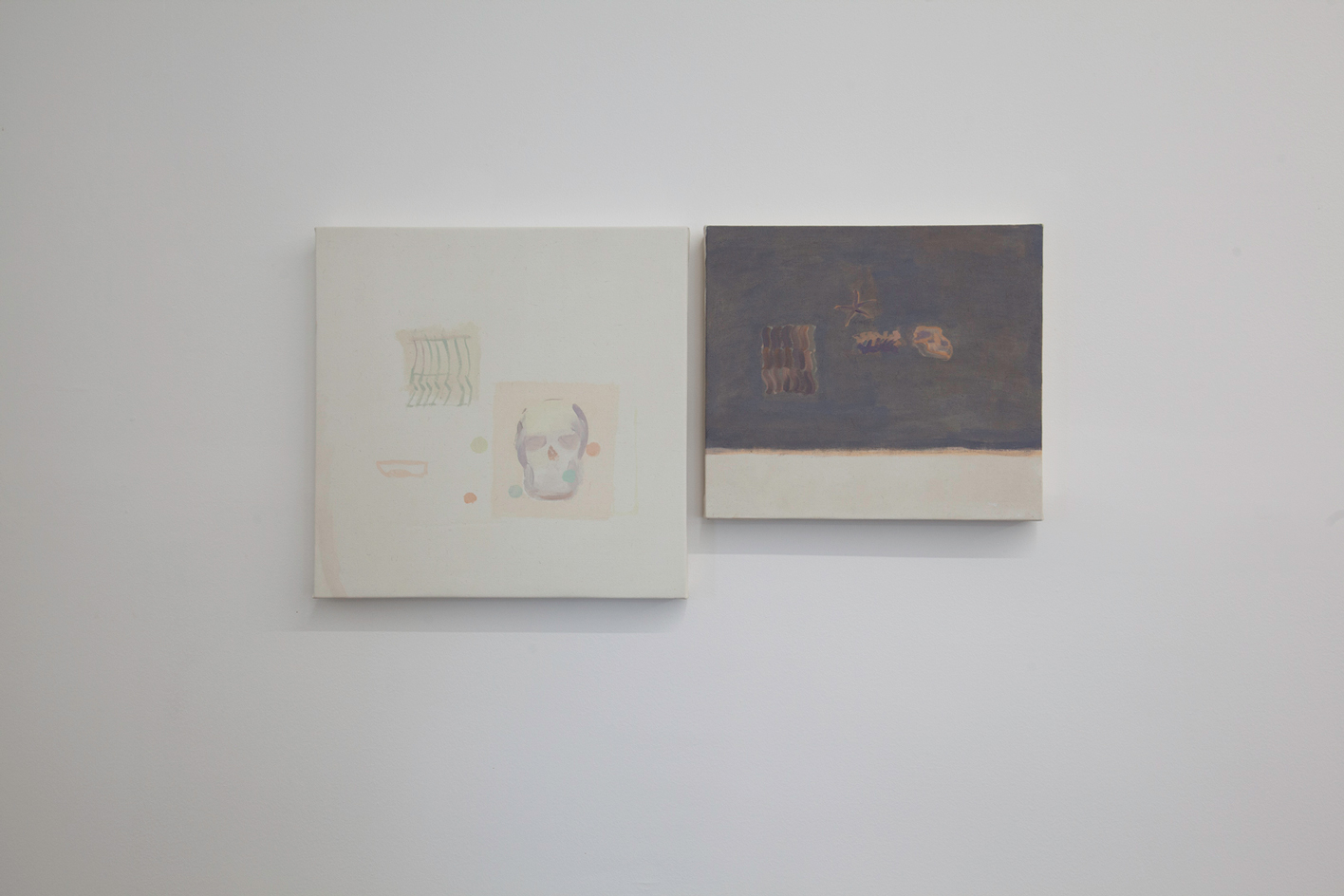
Shikh Shabbir Alam at the Kochi-Muziris Biennale
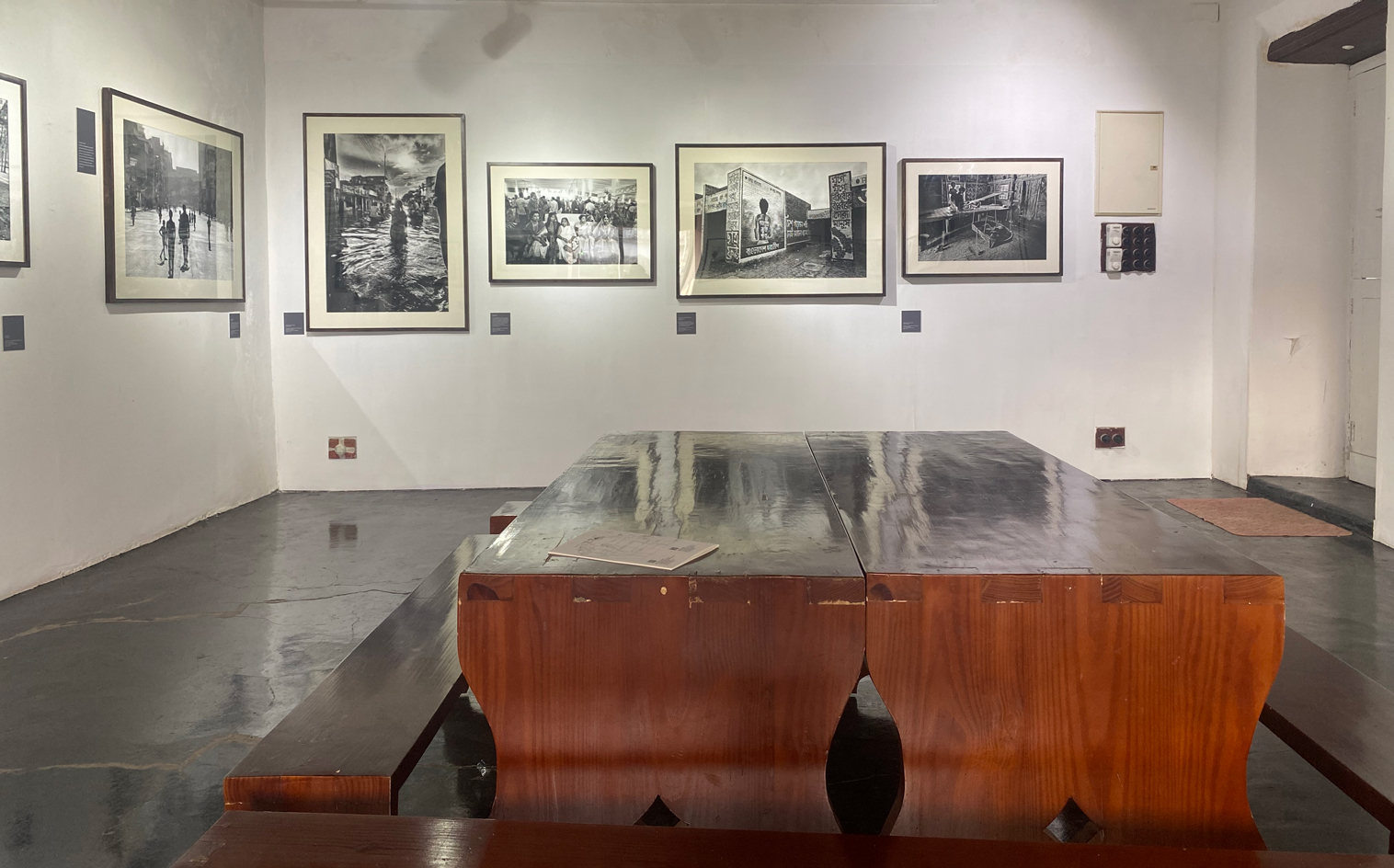
Shahidul Alam ‘Singed Not Burnt' at the Kochi-Muziris Biennale
Some solo exhibitions – ‘Anatomy of a Vegetable’ and ‘ZOBOP’ by Prasanta Sahu, and ‘Singed Not Burnt’ by Shahidul Alam – on display at the Mocha Art Café (their lemonade is fantastic) and Dutch Warehouse are provocative, urgent and beautiful. Centring agriculture, farmers and the precarity of their existence, Sahu’s work is a ‘rumination on fragile ecosystem’, while ‘ZOBOP’, provides an insightful rumination of everyday rural life, objects, memories and desires intertwined with the undeniable bio-political matrix. Ina Puri’s curatorial text reads: ‘From the epic horror of landscapes devastated by climate change to unflinching images of the ordinary man in the streets fettered by poverty, social inequality to make ends meet to the intimate images of strangers who have become friends over time, Shahidul Alam’s searing portraits bring alive a world that he has embraced as his own.’
The Student’s Biennale features the work of young voices that speak to the most potent issues of these times, exuding a kind of hope that is critical, aspirational, and actionable.
Receive our daily digest of inspiration, escapism and design stories from around the world direct to your inbox.
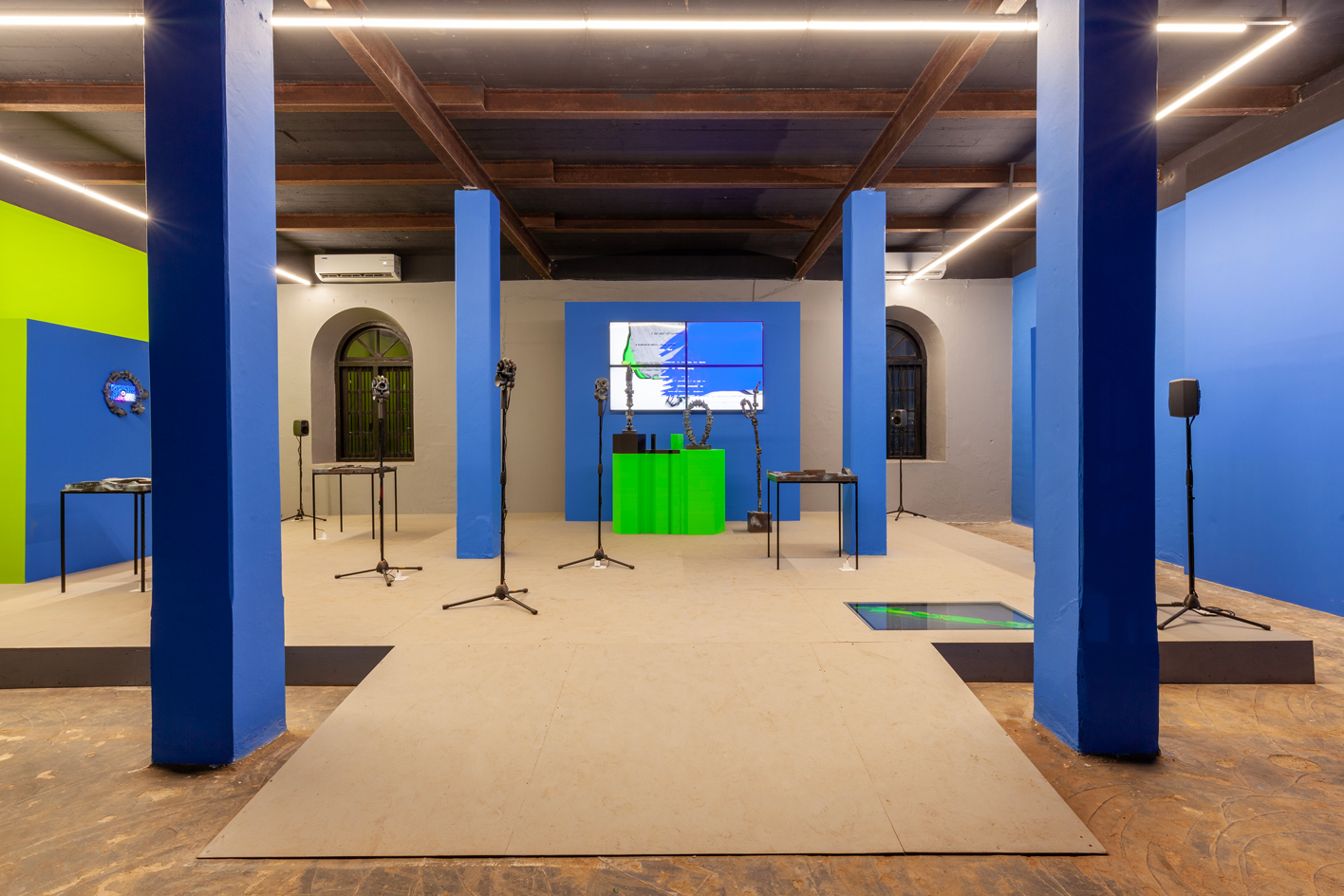
Samson Young at the Kochi-Muziris Biennale
Mario Souza, the head of programming, reflects on the intent and extent of what is to come: ‘We are looking at artists across the world, how they respond to their own socio-political contexts, and how they strategise and develop new methodologies and forms of coming together. It is also a post-pandemic edition in every sense of the word, rethinking the idea of the collective, intimacy, and the coming together of bodies. Solidarity is the anchor. Poetry, song, protest, assertion feeding into the idea of hope while also criticising the status quo.’
On a wall at the main venue (Aspinwall House), are the words ‘It’s Our Biennale’ in two languages, English and Malayalam, serving as a mnemonic cue. Kerala is a state like no other, and the biennale at Kochi is unequalled in its inclusivity. Kochi-Muziris Biennale exudes a sense of ‘ourness’, and embraces you into it.
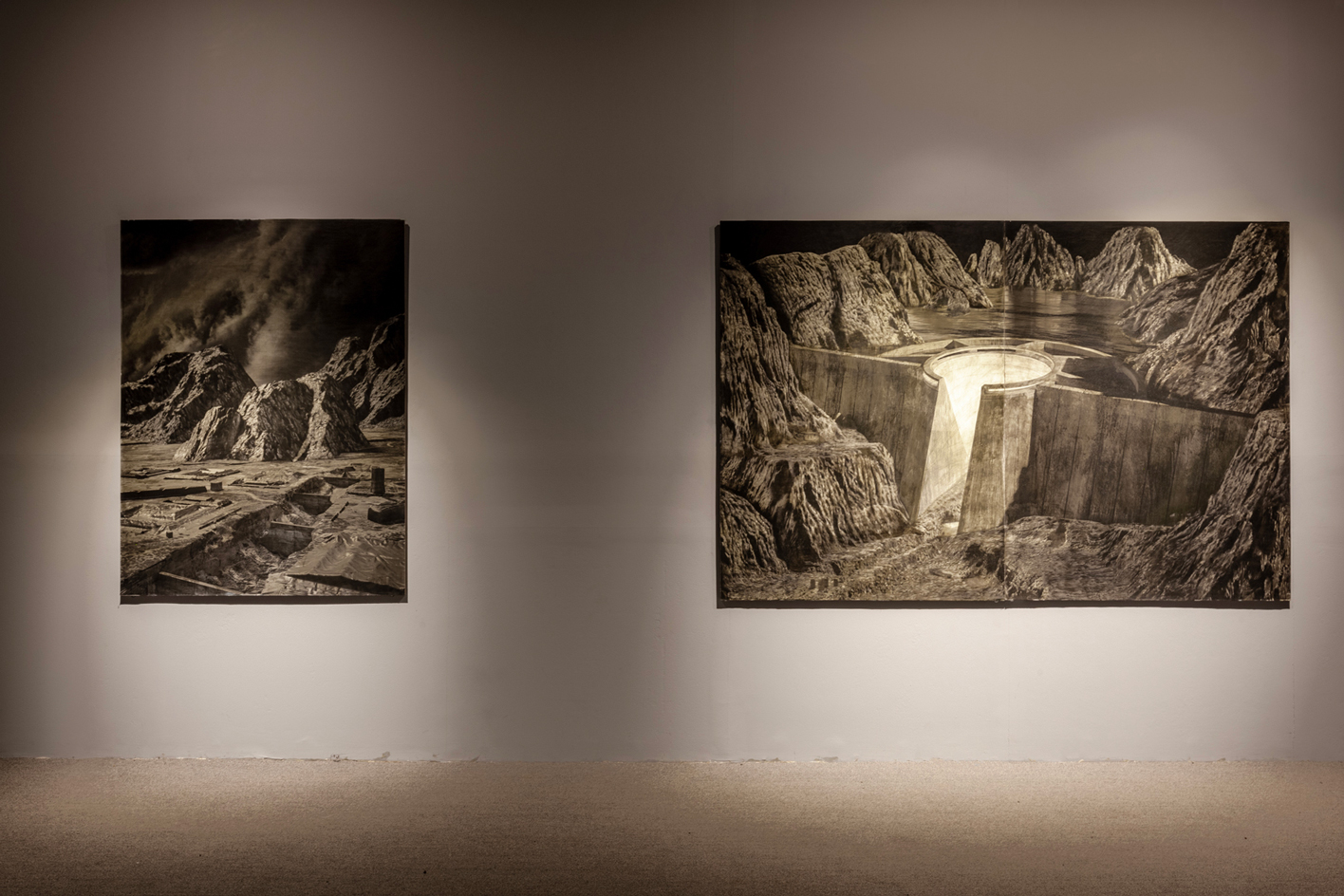
Pranay Dutta at the Kochi-Muziris Biennale
The Kochi-Muziris Biennale runs until 10 April 2023. kochimuzirisbiennale.org
Aastha D. (she/they) is an independent scholar, essayist, and educator. They have degrees in architecture and its critical, curatorial, and conceptual practices. She founded the magazine Proseterity, and is also managing editor of the working group Insurgent Domesticities at the Center for the Study of Social Difference (CSSD) of Columbia University